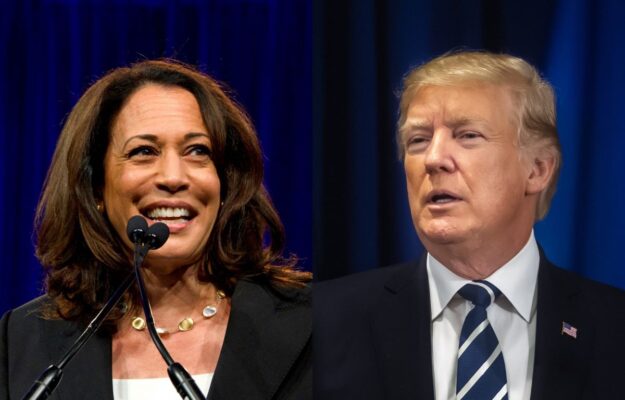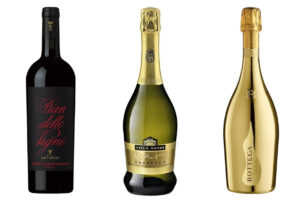With Joe Biden’s withdrawal and Kamala Harris’s now expected descent into the field (the official nomination will come from the Democratic Convention in Chicago in August) as Donald Trump’s direct opponent in the race to the White House, the U.S. presidential battle restarts with new momentum. On November 5, Americans will choose their future president, and the victory of one or the other will affect the country’s domestic situation - in terms of immigration, security, welfare and civil rights - and the international situation, considering the importance of the United States in the world chessboard. But what could be, for Italian agribusiness, and in particular for wine, the possible consequences of the election of Donald Trump or Kamala Harris, considering that the United States is our main importer in the world? Andrew Spannaus, an American journalist and political analyst based in Italy and author of the podcast “That’s America” on “Radio 24” (his new book comes out in early October), tried to outline a scenario based on the two candidates’ trade policy agendas. On the one hand, the protectionist stance of Trump - who has already declared his willingness to apply 10% tariffs to all products coming from abroad (with a 60% spike on Chinese goods) - and, on the other hand, a likely softer approach for Kamala Harris, along the lines already set by Biden during his term. In any case, Spannaus points out, “Americans will never stop craving, buying and eating food and wine made in Italy”.
To date, Italian wine exports to the U.S. maintain a positive sign: if in the first four months of 2024, wine exports, globally, exceeded 2.5 billion euros (+7% in value over the same period of 2023) and 690.76 million liters (+5.8% in volume over the first four months of 2023), for the U.S., which has always been Italy's first wine market, these maintain their leadership, with 626 million (+6% on the figure to the same period 2023, a surge from the +2.2% in March), ahead of Germany (first European destination and second worldwide) and the United Kingdom (Istat data analyzed by WineNews).
Good results also facilitated by the absence of duties on Italian wine in the U.S.: a sector that has never been affected by U.S. “gabelle”, unlike other made-in-Italy sectors - such as cheeses, cured meats and spirits - and even French and Spanish wine.
The “tariff war” began during the Trump administration as a retaliatory tool in the context of two strategic quarrels in U.S.-European Union political-economic relations, one on steel and aluminum and one on the aviation sector. Regarding the former, in order to protect U.S. industry Washington instituted, in 2018, heavy tariffs on aluminum and steel from other countries, including the European Union. Brussels responded to this measure with a series of measures targeting not only the same type of goods coming from the U.S., but also some iconic star & stripes products, from Levi’s to Harley Davidson, via bourbon and whiskey. Instead, the Airbus-Boeing dispute began as far back as 2004, when the U.S. accused the EU of illegally subsidizing the European Airbus consortium; in turn, Brussels had filed a complaint against the U.S. for its illegal support of Boeing. In retaliation, the two sides imposed punitive tariffs on each other’s exports: as far as the U.S. was concerned, on made-in-Italy cheeses, cured meats and spirits (with serious repercussions on our excellence), but not on wine. It went worse for French and Spanish bottles, which ended up in the crosshairs of U.S. duties, with heavy repercussions on exports. A trade war “frozen” thanks to Biden: starting in 2021, in fact, the current president suspended duties, with an agreement signed with European Commission President Ursula von der Leyen, valid for 5 years.
However, the duties were never cancelled, only suspended: the risk, therefore, is that Trump, if elected, will decide to reactivate them, even before the deadline. Not only that: the list of affected products could also change-and lengthen. As is evident from what has happened in recent years, duties represent a strategic weapon to fight much larger and more important political and economic games, in which the players are not only the United States and the European Union, but also and especially China.
According to Trump’s latest utterances, if he is elected to the White House, Europe will have to prepare for a new trade tariff war with the US. He announced this himself in a lengthy interview with “Bloomberg Businessweek” in recent days. Indeed, former President Donald Trump said he would impose tariffs of 10% on all products imported into the U.S. from abroad, with a levy of 60% or more on Chinese imports. The idea, he said, is to protect American jobs and increase revenue, as part of his “America First” agenda.
For journalist Andrew Spannaus, “throughout his presidency Donald Trump has challenged the system of globalization and free trade. His method has been rough and “crude”, resulting in inaccurate and often unfocused effects. He is very likely to continue this protectionist line in the future: suffice it to say that his trade adviser, Robert Lighthizer, argues that the U.S. should not have a trade deficit. In contrast, Kamala Harris has not yet commented on the issue of possible tariffs: I believe that she will continue in the direction initiated by Biden, with the same working group, with a view to working with the European Union, albeit in the interest of the United States. After all, the measures taken by Biden during his term have been precise and calibrated, while not taking steps backward”. Other U.S. analysts think so, too, that Harris will largely adopt President Biden’s economic blueprint on taxes and international trade. “I think he will follow Biden’s economic script closely”, Mark Zandi, chief economist at Moody’s Analytics, said recently. “In any case, the goal for the next president”, Spannaus continued, “is to rebuild a stronger manufacturing base. Indeed, it is not enough to put in tariffs and protectionist measures to increase domestic production: you need industrial capacity and a skilled workforce. In short, it takes time and big investments”.
And specifically for the agribusiness sector? “It is not high on the political agenda of the candidates, who see more strategic issues at the top”, Spannaus explains, “it is true that today in the U.S. everyone wants to make wine, production is expanding, and who knows that in the future someone may put protectionist measures in place to defend U.S.-made wine. But, even taking into account that consumption in the U.S. is expanding right now, I believe that Americans will never stop loving and buying Italian wine and food”.
Copyright © 2000/2026
Contatti: info@winenews.it
Seguici anche su Twitter: @WineNewsIt
Seguici anche su Facebook: @winenewsit
Questo articolo è tratto dall'archivio di WineNews - Tutti i diritti riservati - Copyright © 2000/2026







































































































































































































